
Najran: Oasis of Culture and Tradition in Saudi Arabia
Najran is a city that radiates history and culture. Located in the southwest of Saudi Arabia, close to the Yemeni border, Najran offers a unique blend of traditional Arabian architecture and modern comforts. Known for its lush oases and stark desert landscapes, the city is a welcoming retreat for travelers seeking an authentic Middle Eastern experience. The city is home to the Al-Ukhdood archeological site, a fascinating glimpse into the ancient civilizations that once thrived in the region. Here, you can walk among the remnants of old stone structures and inscriptions, some dating back to the pre-Islamic era. The Najran Museum is another must-visit, housing artifacts that tell the story of the region's rich history from prehistoric times to the Islamic period. For nature enthusiasts, the Najran Valley Dam is an impressive sight, surrounded by palm groves and offering a serene spot for picnics and relaxation. The city is also famous for its traditional souks, where you can shop for local handicrafts, spices, and Najrani daggers, a symbol of the city's heritage. Najran's culinary scene is a delightful journey through Arabian flavors. Don't miss out on trying mandi, a traditional dish made with spiced rice and meat, which is a local favorite. The city's hospitality is unmatched, with friendly locals always ready to share stories and offer a cup of qahwa, traditional Saudi coffee.
Local tips in Najran
- Visit Al-Ukhdood early in the morning to avoid the midday heat and enjoy a more comfortable exploration.
- Dress modestly to respect local customs and cultural norms. Light, breathable clothing is recommended due to the hot climate.
- Try to learn a few basic Arabic phrases. While many locals speak English, a little effort goes a long way in making connections.
- Hire a local guide for a more insightful tour of historical sites and to better understand the rich heritage of Najran.
- Stay hydrated and carry water with you, especially if you plan on exploring the desert areas around the city.
Najran: Oasis of Culture and Tradition in Saudi Arabia
Najran is a city that radiates history and culture. Located in the southwest of Saudi Arabia, close to the Yemeni border, Najran offers a unique blend of traditional Arabian architecture and modern comforts. Known for its lush oases and stark desert landscapes, the city is a welcoming retreat for travelers seeking an authentic Middle Eastern experience. The city is home to the Al-Ukhdood archeological site, a fascinating glimpse into the ancient civilizations that once thrived in the region. Here, you can walk among the remnants of old stone structures and inscriptions, some dating back to the pre-Islamic era. The Najran Museum is another must-visit, housing artifacts that tell the story of the region's rich history from prehistoric times to the Islamic period. For nature enthusiasts, the Najran Valley Dam is an impressive sight, surrounded by palm groves and offering a serene spot for picnics and relaxation. The city is also famous for its traditional souks, where you can shop for local handicrafts, spices, and Najrani daggers, a symbol of the city's heritage. Najran's culinary scene is a delightful journey through Arabian flavors. Don't miss out on trying mandi, a traditional dish made with spiced rice and meat, which is a local favorite. The city's hospitality is unmatched, with friendly locals always ready to share stories and offer a cup of qahwa, traditional Saudi coffee.
When is the best time to go to Najran?
Iconic landmarks you can’t miss
AlUkhdud Archaeological Site
Uncover the fascinating history of the AlUkhdud Archaeological Site, a UNESCO World Heritage candidate known for its stunning rock engravings in Saudi Arabia.
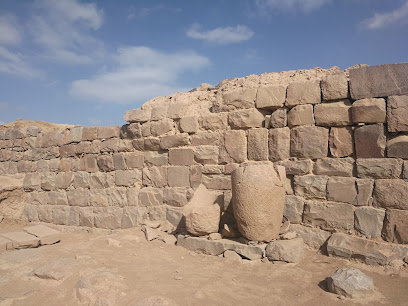
Najran Park Mall
Discover Najran Park Mall, Najran's ultimate shopping destination offering a wide range of stores, dining options, and entertainment for all ages.
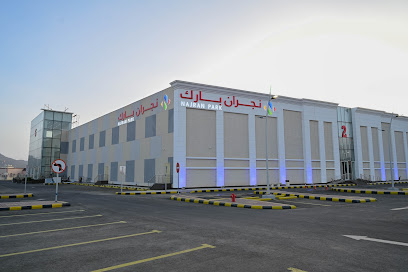
Al Hayah Mall
Discover Al Hayah Mall, Najran's premier shopping destination, offering a unique blend of retail, dining, and entertainment experiences.
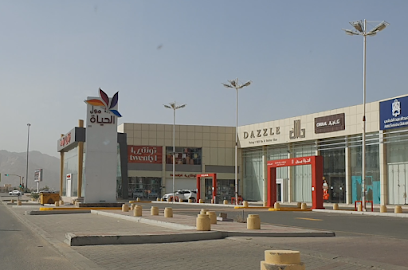
Le Park Concord Hotel - فندق لو بارك كونكورد
Discover the best of Najran at Le Park Concord Hotel, where comfort meets modern elegance in Saudi Arabia's vibrant landscape.
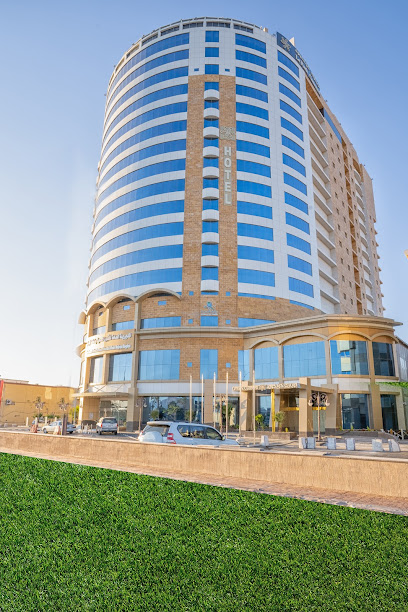
Aan Palace قصر العان
Explore the majestic Aan Palace in Najran, a historical site that showcases Saudi Arabia's architectural beauty and cultural heritage.
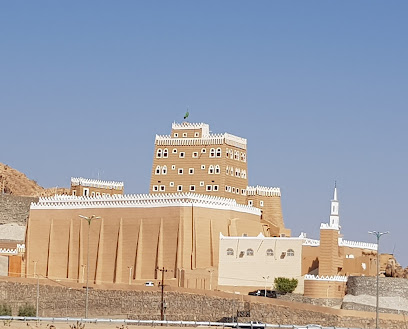
Suleiman Azam Mosque
Explore the architectural beauty and cultural significance of Suleiman Azam Mosque, a serene spiritual haven in Najran, Saudi Arabia.
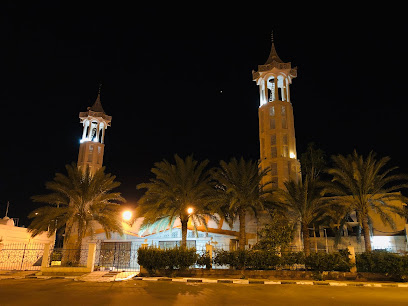
Garden Aerysh
Discover the tranquil oasis of Garden Aerysh in Najran, a perfect blend of nature and relaxation, ideal for families and nature lovers.
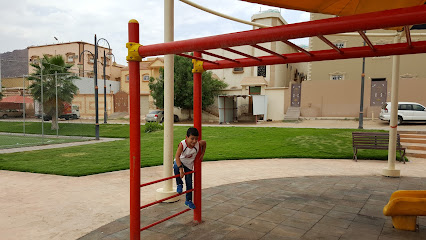
Amarah Palace
Discover the rich history and stunning architecture of Amarah Palace in Najran, a must-visit castle that showcases Saudi Arabia's cultural heritage.
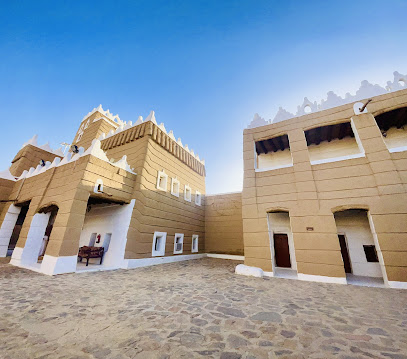
Al-Okhdood Hotel
Discover the heart of Najran's culinary scene at Al-Okhdood Hotel, where authentic flavors meet welcoming hospitality.
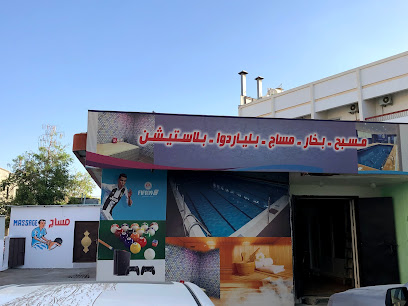
King Saud Park
Explore King Saud Park in Najran, a serene state park perfect for relaxation, family outings, and immersing in the natural beauty of Saudi Arabia.
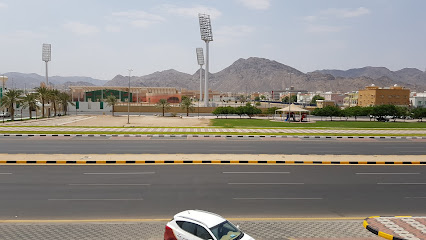
King Fahd Park
Experience the tranquility of King Fahd Park, a lush urban oasis in Najran perfect for relaxation, picnics, and family fun amidst nature.
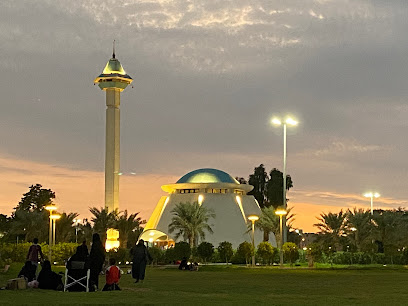
حديقة الحزام
Discover the lush landscapes of Al-Hizam Park in Najran, a serene escape filled with vibrant flowers and tranquil pathways for relaxation and recreation.
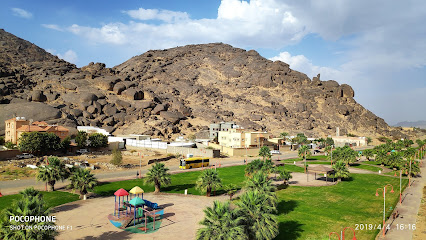
Prince Mishal Park
Explore Prince Mishal Park, a serene green oasis in Najran, ideal for relaxation, family outings, and enjoying nature's beauty.
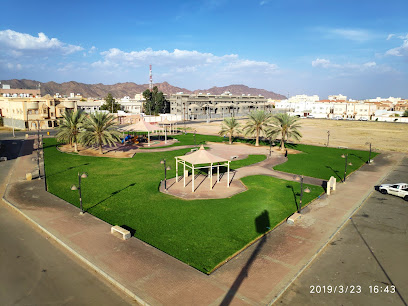
كيان للوحدات السكنية Kayan Hotel
Discover the perfect blend of comfort and culture at Kayan Hotel in Najran, where modern amenities meet traditional Saudi hospitality.
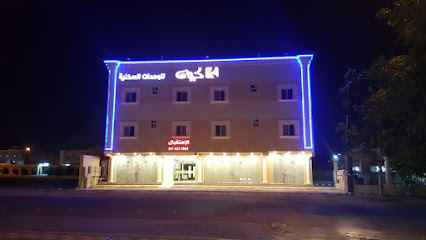
Donut Land
Discover the sweet side of Najran at Donut Land, where delicious donuts and cozy ambiance create the perfect cafe experience.
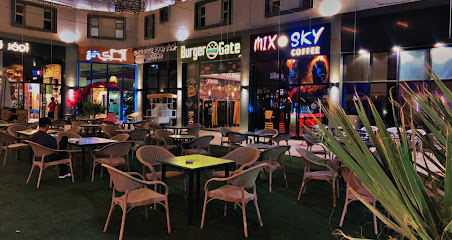
Unmissable attractions to see
ملاهي عالم هابي لاند الترفيهية بنجران
Discover the thrilling adventures and family-friendly fun at Al-Habi Land, Najran's top amusement park for unforgettable experiences.
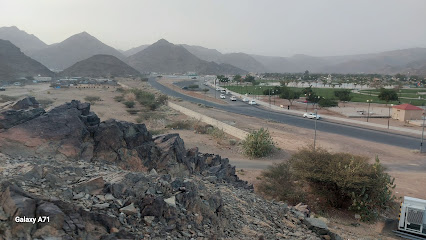
Aan Palace قصر العان
Explore Aan Palace in Najran, a historical jewel showcasing stunning architecture and rich cultural heritage for every traveler.
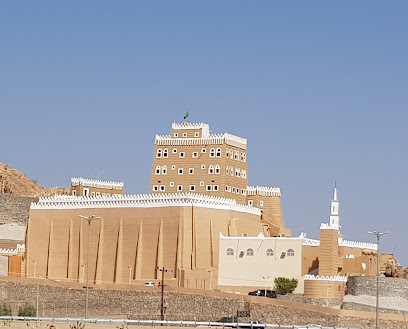
Garden Aerysh
Discover the beauty of nature at Garden Aerysh in Najran, a peaceful garden paradise perfect for relaxation and family outings.
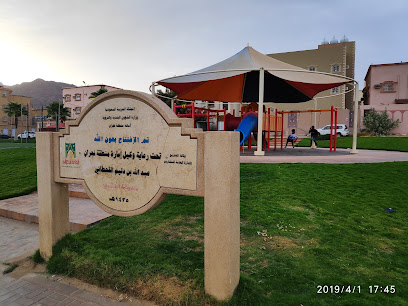
King Saud Park
Discover the tranquil oasis of King Saud Park in Najran, where nature meets serenity for an unforgettable outdoor experience.
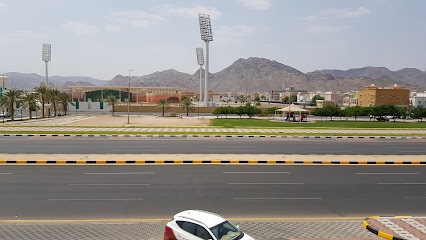
King Fahd Park
Discover the lush landscapes and serene atmosphere of King Fahd Park in Najran, a tranquil retreat for nature lovers and families alike.
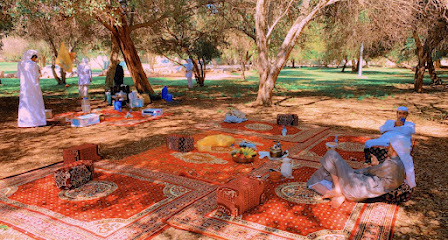
حديقة الحزام
Discover the serene beauty of Al-Hizam Garden in Najran, a lush oasis perfect for relaxation, family outings, and nature appreciation.
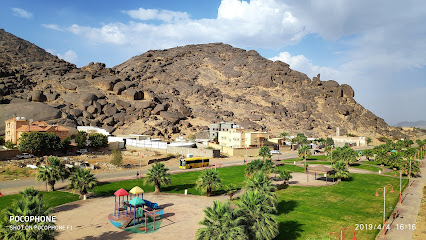
Prince Mishal Park
Explore the beauty of nature and leisure at Prince Mishal Park, a tranquil retreat in Najran perfect for families and nature lovers alike.
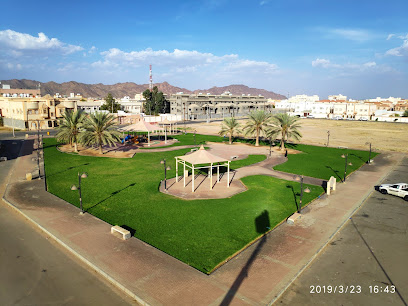
Old Emirate Palace
Experience the rich history and architectural beauty of the Old Emirate Palace, a must-see museum in Wadi ad-Dawasir, Saudi Arabia.
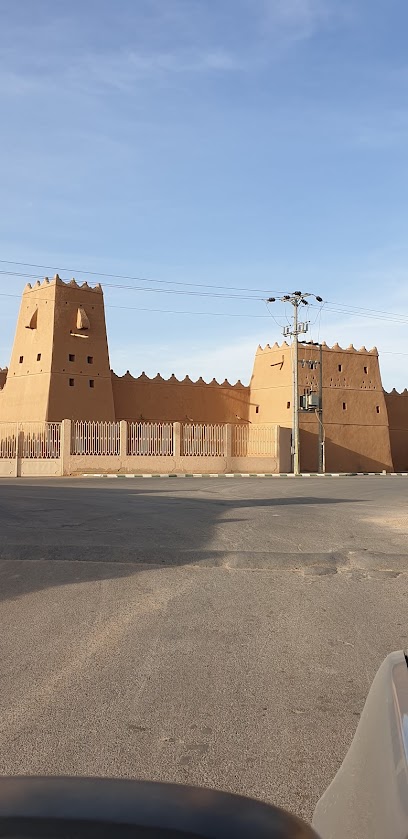
منتزه مستشفى الولادة والاطفال
Explore Najran's Children's Park, a vibrant family-friendly oasis filled with flowers, greenery, and fun activities for all ages.
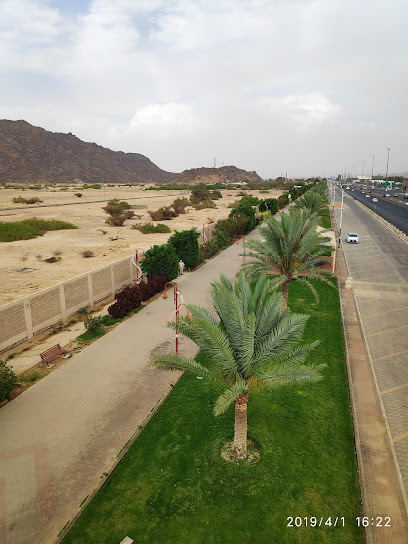
Najran Valley Dam
Explore the stunning Najran Valley Dam, a serene national forest offering breathtaking views, outdoor activities, and a peaceful escape in Saudi Arabia.
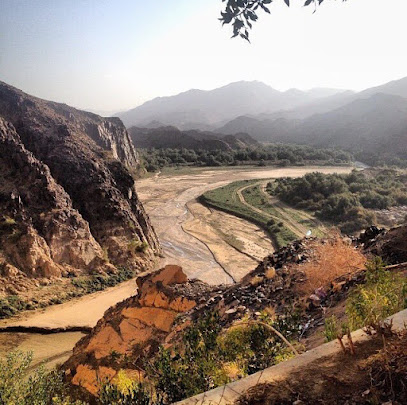
مطل مغره
Discover breathtaking views and serenity at مطل مغره, a stunning viewpoint in Najran, Saudi Arabia, perfect for nature lovers and photographers.
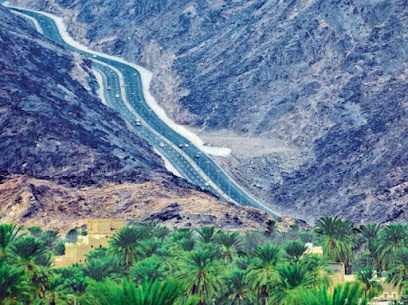
قصر تركي الماضي
Discover the stunning Qasr Turki Al-Mazid in Najran, a historical landmark that embodies the rich cultural heritage and architectural beauty of Saudi Arabia.
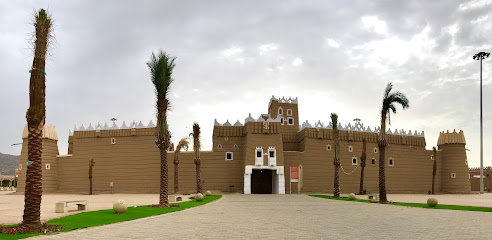
Mount Raoum
Explore breathtaking trails and stunning vistas at Mount Raoum, the perfect hiking destination in Aba as Su'ud, Saudi Arabia.
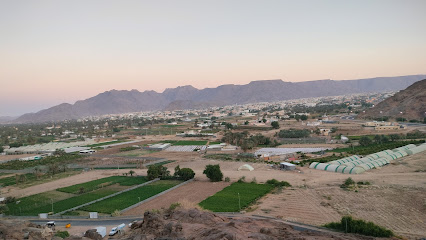
قرية آل منجم التراثية
Explore the historical essence of Al-Munjam Village in Najran, Saudi Arabia, where rich heritage and stunning architecture await every traveler.
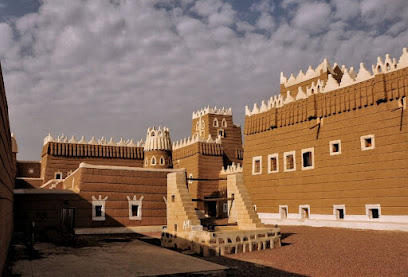
Sheikh Ali Bin Hussein Al Makrami Palace
Explore the architectural beauty and rich history of Sheikh Ali Bin Hussein Al Makrami Palace, a must-see landmark in Najran, Saudi Arabia.
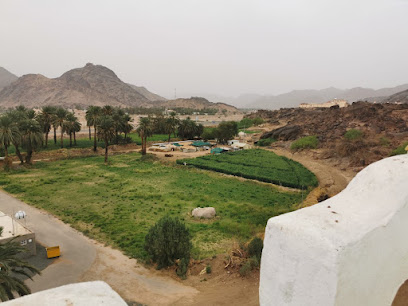
Essential places to dine
Makan Indian fine dining- Najran
Experience the essence of authentic Indian cuisine at Makan Indian Fine Dining in Najran, where every meal is a celebration of flavors.
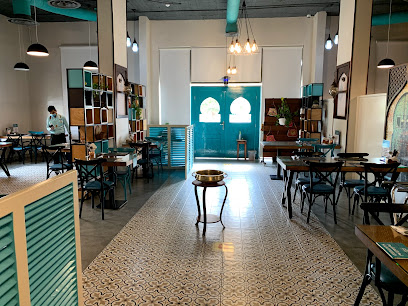
AL DEWAN RESTAURANT
Discover the delightful fast food experience at Al Dewan Restaurant in Najran, where local flavors meet quick service.
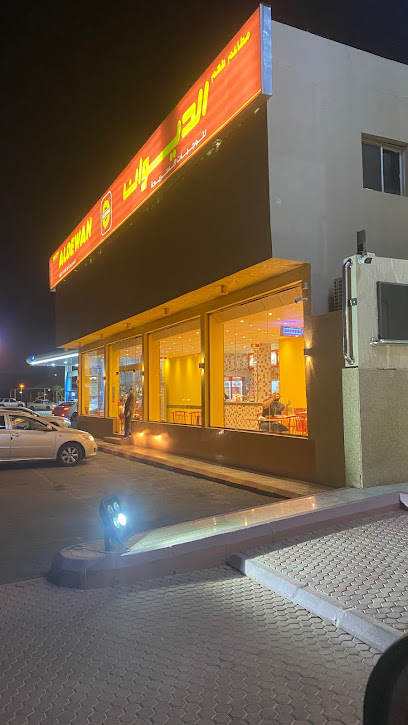
مطاعم الرمال / الخالدية
Experience the rich flavors of Saudi cuisine at مطاعم الرمال / الخالدية in Najran—where tradition meets taste.
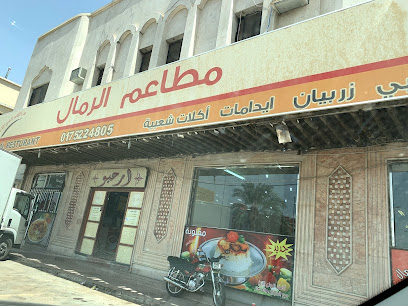
مطعم مارنيز
Savor authentic Saudi Arabian cuisine at مطعم مارنيز in Najran - a culinary gem featuring traditional dishes and warm hospitality.
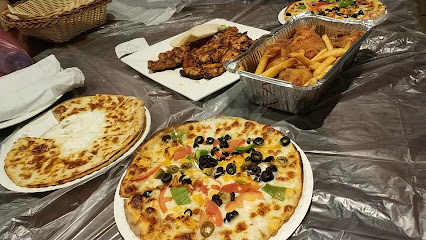
Two Rivers Restaurant Iraqi Food
Experience authentic Iraqi cuisine in Najran at Two Rivers Restaurant – where tradition meets flavor.
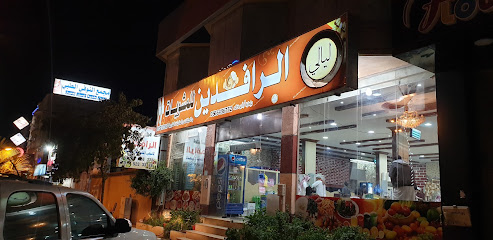
Steamer Restaurant
Experience authentic Saudi flavors at Steamer Restaurant in Najran - where every meal is a celebration of taste and tradition.
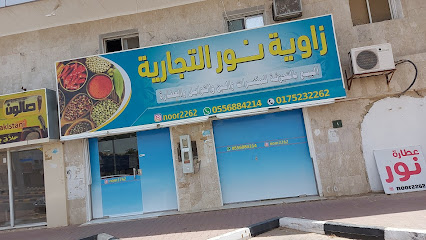
فيرا بيسترو Fira Bistro
Discover Fira Bistro in Najran: A Culinary Haven Blending Local Flavors with International Cuisine in a Cozy Atmosphere.
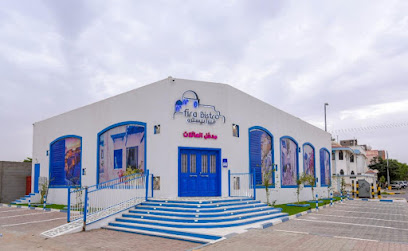
كباب حمزه kabab hamzah najran
Discover authentic Middle Eastern flavors at Kabab Hamzah in Najran—home to succulent kebabs and warm hospitality.
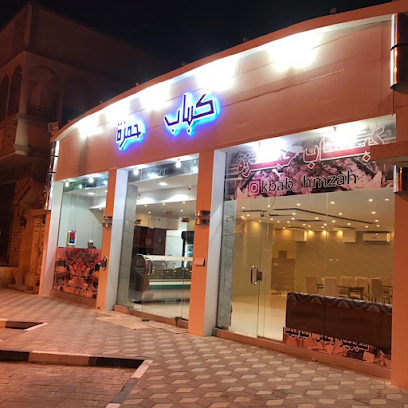
مطعم الكرم فرع 2 - 2 Alkaram Resturant
Experience authentic Turkish flavors at Alkaram Restaurant in Najran – where every dish tells a story of tradition and taste.
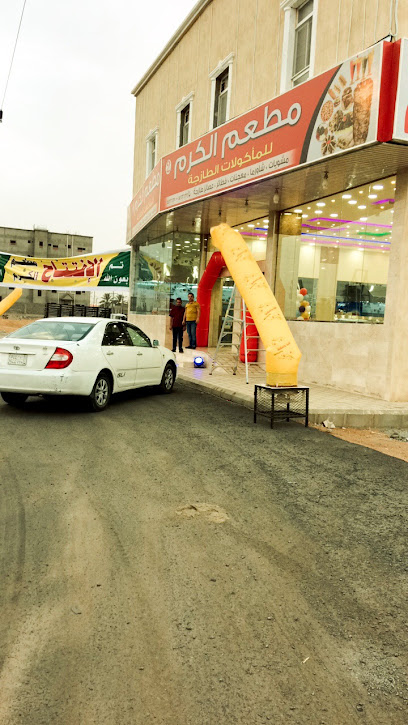
مطعم لاستيلا
استمتع بتجربة تناول طعام فريدة في مطعم لاستيلا بنجران مع أطباق شهية وأجواء دافئة.
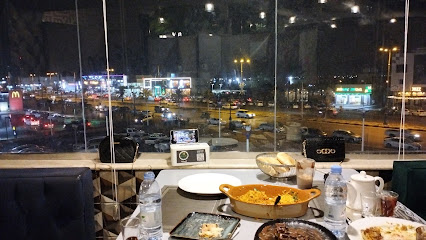
Jan jehan
Savor authentic Indian cuisine at Jan Jehan in Najran – where every dish tells a story of rich flavors and tradition.
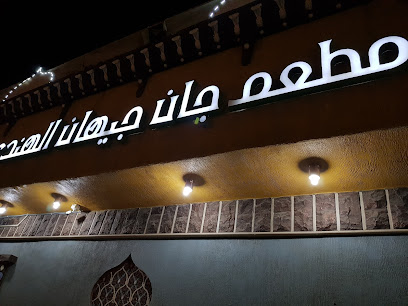
مطعم شاليمار الباكستاني الفصليه
Experience authentic Pakistani cuisine at Shalimar Restaurant in Najran – where every dish tells a story.
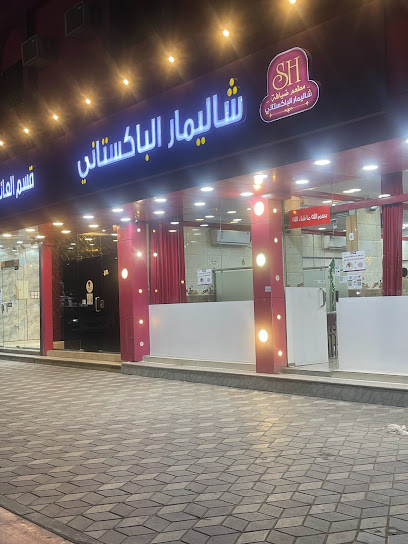
Mazbi Alhasel مظبي الحاصل
Discover the rich flavors of Saudi Arabia at Mazbi Alhasel – a top dining destination in Najran offering authentic cuisine and warm hospitality.
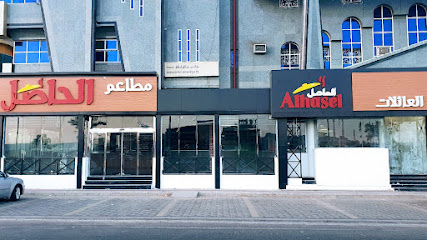
مطاعم السفرة العريبة
Discover authentic Arabian cuisine at Al-Safra Arabic Restaurant in Najran - where tradition meets taste.
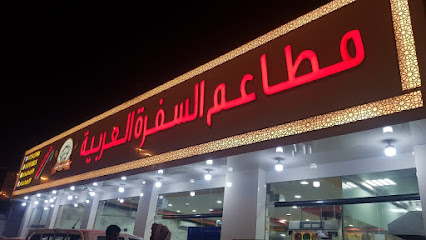
Eastern Tables' restaurant
Experience authentic Saudi cuisine with a modern twist at Eastern Tables in Najran - where every meal tells a story.
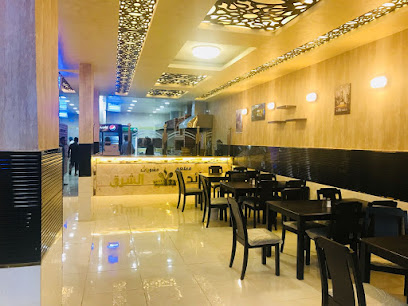
Markets, malls and hidden boutiques
HyperPanda
Discover HyperPanda in Najran: A shopping haven for tourists, offering local flavors, fresh produce, and household essentials in one vibrant location.
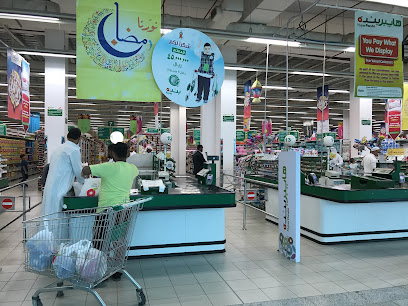
Najran Royal Center
Explore Najran Royal Center, your go-to destination for a diverse range of quality cosmetics and beauty products in the heart of Najran.
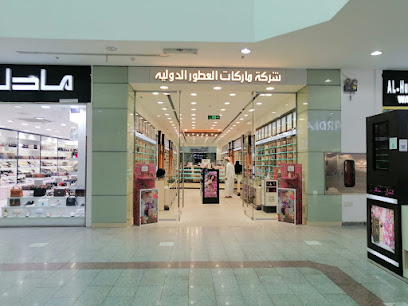
Najran Mall
Explore Najran Mall: Your ultimate shopping and dining destination in Najran, where local culture meets modern retail.
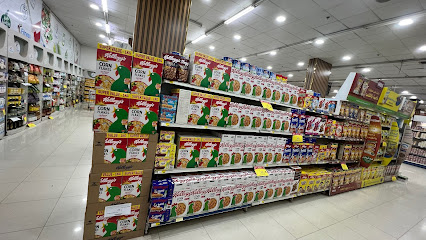
Carrefour Hypermarket Najran Store
Discover Carrefour Hypermarket in Najran, where shopping meets convenience in a vibrant retail environment, perfect for tourists and locals alike.
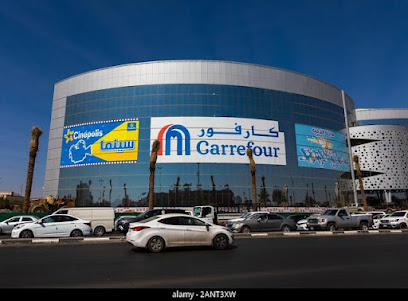
Najran Park Mall
Explore Najran Park Mall, a vibrant shopping haven in Najran, Saudi Arabia, where style meets entertainment for an unforgettable experience.
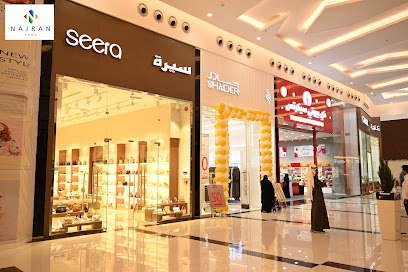
Al Hayah Mall
Discover the vibrant shopping experience at Al Hayah Mall in Najran, where local culture meets international retail in a lively atmosphere.
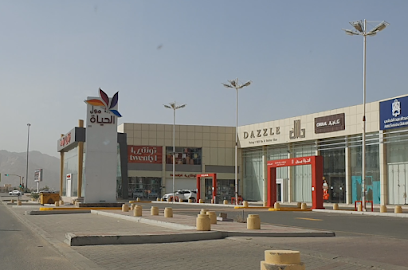
Najran Mall -abaasaud 3
Experience the lively atmosphere of Najran Mall, where shopping, dining, and entertainment come together in a vibrant shopping haven.
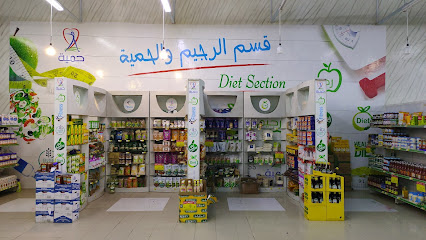
Easystore
Discover the latest in electronics at Easystore in Najran, a top destination for tourists seeking quality gadgets and unbeatable prices.
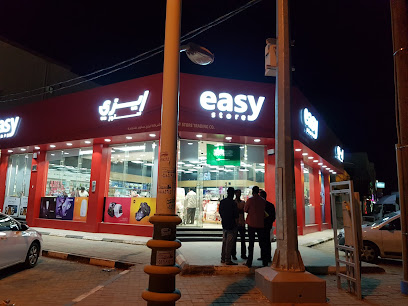
REDTAG
Explore the vibrant world of fashion at REDTAG in Najran, where style meets affordability for the whole family.
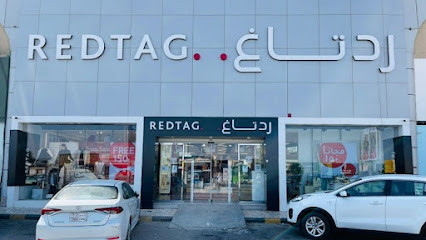
Nazih Cosmetics (Najran Showroom)
Explore Nazih Cosmetics in Najran for a diverse selection of beauty products and expert advice to enhance your beauty routine.
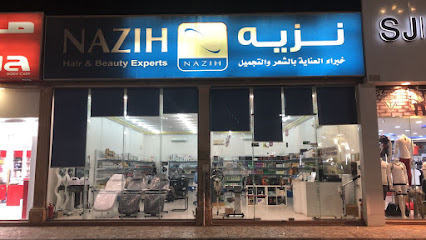
نجران سيتي سنتر
Explore Najran City Center, a vibrant shopping mall in Najran offering a mix of modern shopping, local cuisine, and cultural experiences.
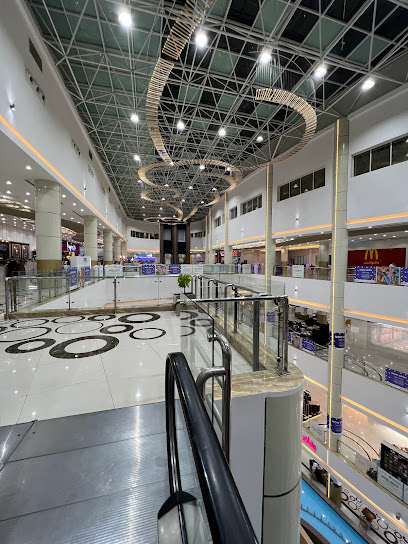
923 العربية للعود | Arabian Oud
Explore the captivating world of Arabian Oud in Najran, where luxury fragrances and traditional craftsmanship blend seamlessly.
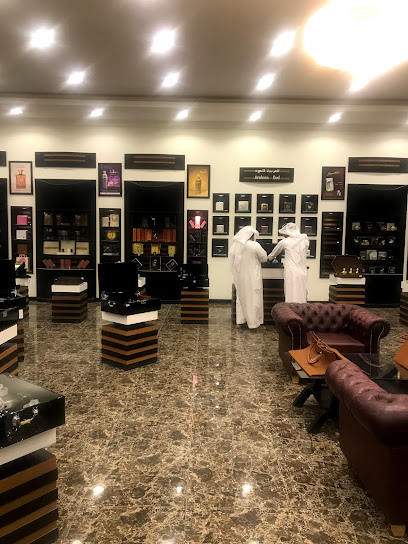
مركز يوم بيوم
Explore the vibrant fashion scene at مركز يوم بيوم, Najran's premier clothing store, showcasing local designs and contemporary styles.
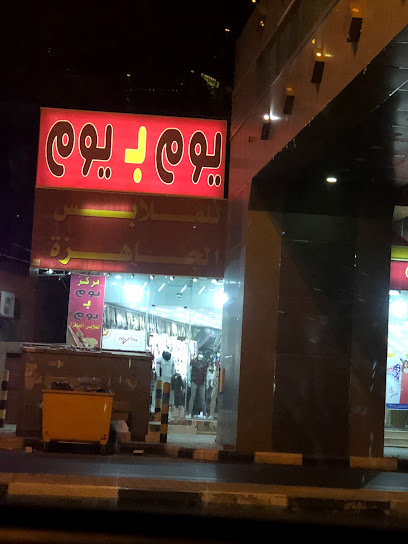
نخبة العود
Explore the rich fragrances of Saudi Arabia at Noble Oud in Najran, where tradition meets luxury in every bottle.
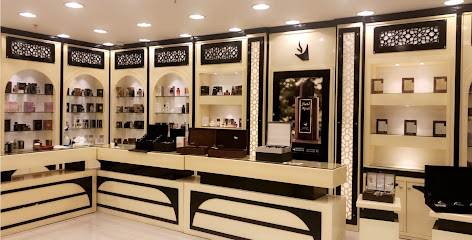
City Flower Department Store
Discover an expansive range of products at City Flower Department Store in Najran, where local culture meets modern shopping.
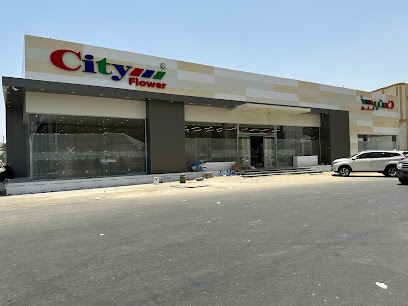
Essential bars & hidden hideouts
Makan Indian fine dining- Najran
Experience the rich and diverse flavors of India at Makan Indian Fine Dining in Najran, where culinary excellence meets tradition.
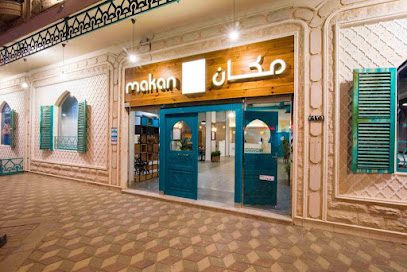
AL DEWAN RESTAURANT
Experience the best of fast food at Al Dewan Restaurant in Najran, where local flavors meet international delights in a welcoming atmosphere.
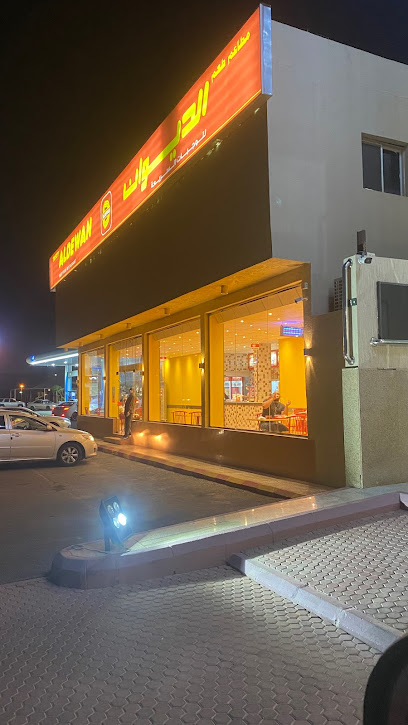
بنباستيك برجر bunbastic burger
Experience the fusion of traditional Arab flavors and gourmet burgers at Bunbastic Burger, a top dining spot in Najran.
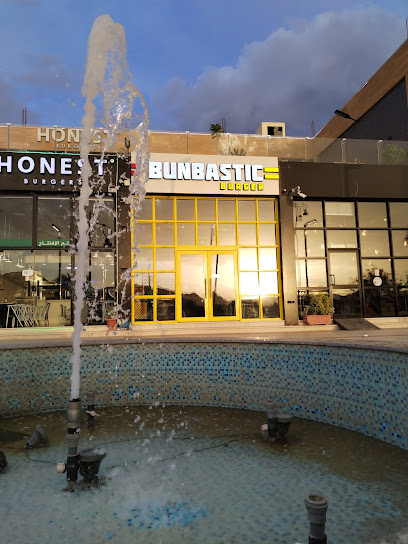
Oasis Hotel
Discover the Oasis Hotel in Najran - a perfect blend of comfort and local cuisine in the heart of Almafraq.
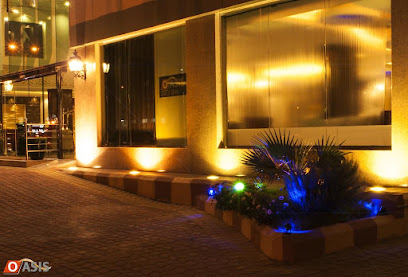
فيرا بيسترو Fira Bistro
Discover the culinary wonders of Najran at Fira Bistro, where local flavors meet international cuisine in a cozy atmosphere.
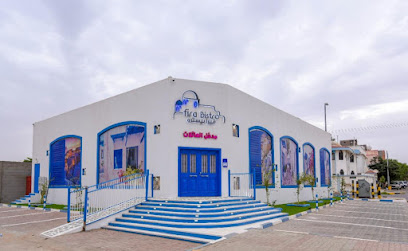
مطعم لاستيلا
Experience the flavors of Saudi Arabia at مطعم لاستيلا, a vibrant restaurant in Najran offering a delightful blend of traditional and modern dishes.
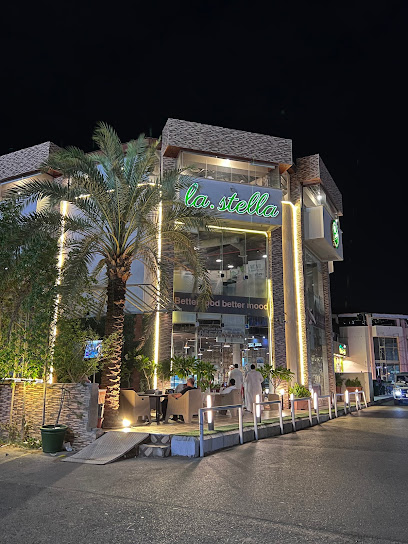
Miffa Tikka
Experience the rich flavors of Saudi Arabian cuisine at Miffa Tikka, a must-visit culinary destination in Najran.
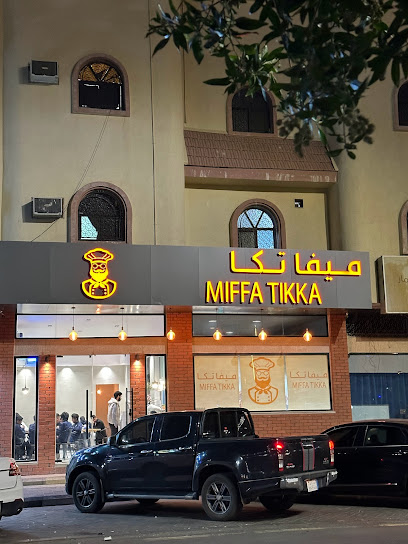
Domo
Savor the taste of Italy in Najran at Domo, where authentic Italian cuisine meets a welcoming atmosphere for an unforgettable dining experience.
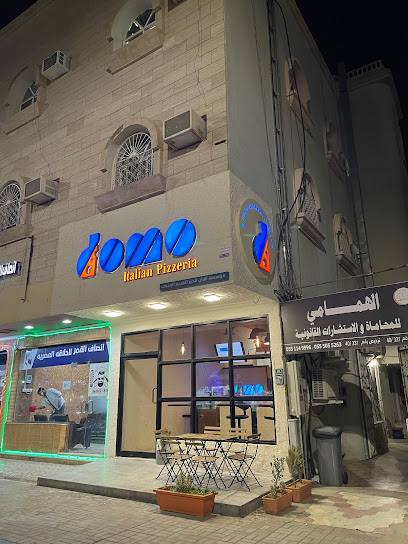
Jarayed shawarma
Experience the authentic taste of shawarma at Jarayed Shawarma, a culinary delight in Najran, perfect for food enthusiasts and travelers alike.
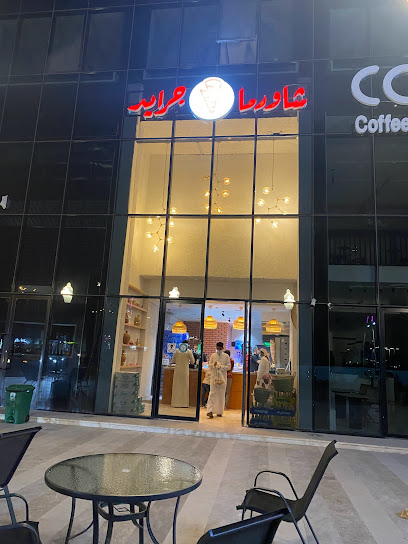
Barn's | بارنز
Discover the cozy charm of Barn's Coffee Shop in Najran, where exquisite coffee and delightful pastries await every visitor.
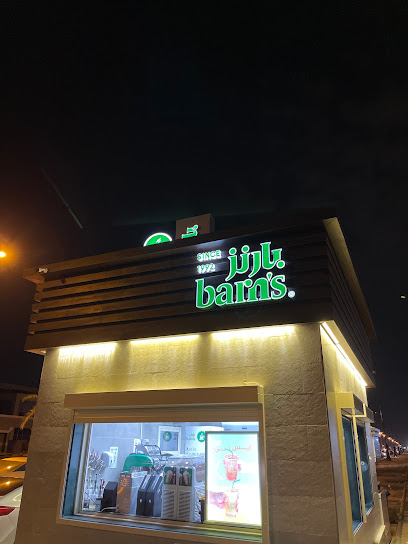
كفتيريا الحديقة
Discover the flavors of Najran at كفتيريا الحديقة, a vibrant restaurant offering authentic local cuisine in a warm and welcoming atmosphere.
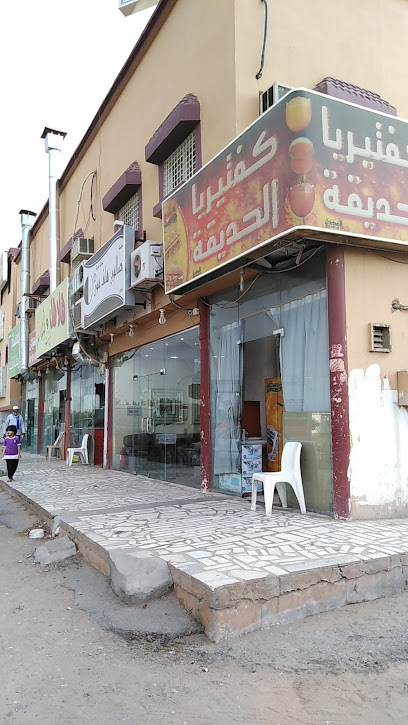
بارتي بوكس Party Box
Experience the vibrant flavors of Najran at Party Box, a culinary hotspot offering a delightful mix of local and international dishes.
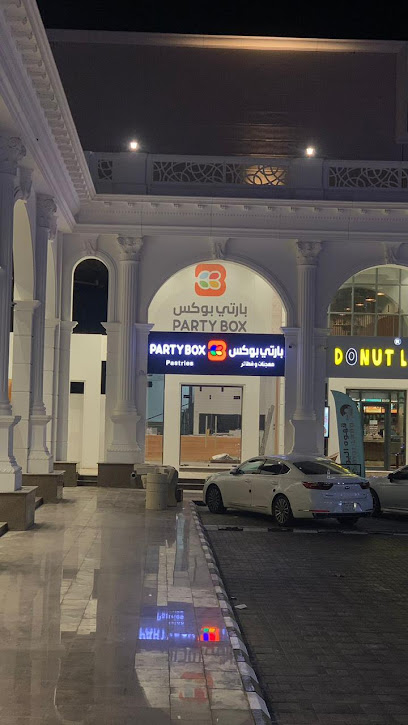
Stopoint burger
Experience the best gourmet burgers at Stopoint Burger, a top-rated fast food restaurant in Najran, perfect for tourists and locals alike.
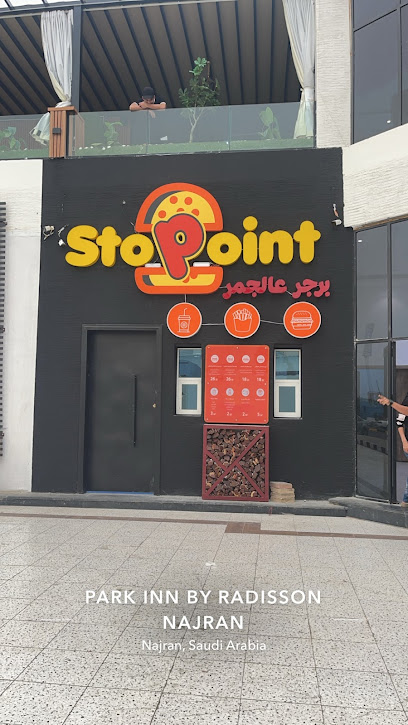
عصائر مشروبي والفلافل الشاميه
Discover the authentic taste of Najran with fresh juices and delectable falafel at عصائر مشروبي والفلافل الشاميه, a local favorite.

Local Phrases
-
- HelloMarhaba
[mar-ha-ba] - GoodbyeMa'a as-salama
[ma-a as-sa-la-ma] - YesNa'am
[na-am] - NoLa
[la] - Please/You're welcomeMin fadlik
[min fad-lik] - Thank youShukran
[shuk-ran] - Excuse me/SorryAasef
[aa-sef] - How are you?Kayfa halak?
[kay-fa ha-lak] - Fine. And you?Jayyid. Wa ant?
[jay-yid. wa ant] - Do you speak English?Hal tatakallam al-ingliziya?
[hal ta-ta-kal-lam al-ing-li-zi-ya] - I don't understandAna la afham
[a-na la af-ham]
- HelloMarhaba
-
- I'd like to see the menu, pleaseOhib an ara al-qaeima, min fadlik
[o-hib an a-ra al-qa-ei-ma, min fad-lik] - I don't eat meatAna la akul lahm
[a-na la a-kul lahm] - Cheers!Saha
[sa-ha] - I would like to pay, pleaseOhib an adfa, min fadlik
[o-hib an ad-fa, min fad-lik]
- I'd like to see the menu, pleaseOhib an ara al-qaeima, min fadlik
-
- Help!Musaidah!
[mu-sai-dah] - Go away!Irhal!
[ir-hal] - Call the Police!Ittasal bialshurta!
[it-ta-sal bi-al-shur-ta] - Call a doctor!Ittasal bialtabib!
[it-ta-sal bi-al-ta-bib] - I'm lostTawajadtu
[ta-wa-ja-dtu] - I'm illAna mareed
[a-na ma-reed]
- Help!Musaidah!
-
- I'd like to buy...Ohib an ashtar...
[o-hib an ash-tar] - I'm just lookingAna faqat atadabbar
[a-na fa-qat a-tad-ab-bar] - How much is it?Kam thamanuh?
[kam tha-ma-nuh] - That's too expensiveHatha ghalun jiddan
[ha-tha gha-lun jid-dan] - Can you lower the price?Hal tastatiu tanzil althaman?
[hal tas-ta-ti-u tan-zil al-tha-man]
- I'd like to buy...Ohib an ashtar...
-
- What time is it?Kam alwaqt?
[kam al-waqt] - It's one o'clockAlwaqt wahid
[al-waqt wa-hid] - Half past (10)Nisf saa (ashra)
[nisf sa-a (ash-ra)] - MorningSabah
[sa-bah] - AfternoonBa'du aldhuhur
[ba-du al-dhu-hur] - EveningAlmasa
[al-ma-sa] - YesterdayAms
[ams] - TodayAlyawm
[al-yawm] - TomorrowGhadan
[gha-dan] - 1Wahid
[wa-hid] - 2Ithnayn
[ith-na-yn] - 3Thalatha
[tha-la-tha] - 4Arbaa
[ar-baa] - 5Khamsa
[kham-sa] - 6Sitta
[sit-ta] - 7Saba'a
[sa-ba-a] - 8Thamania
[tha-ma-ni-a] - 9Tis'a
[tis-a] - 10Ashara
[ash-a-ra]
- What time is it?Kam alwaqt?
-
- Where's a/the...?Ayna...
[ay-na] - What's the address?Maza huwa al'alamat?
[ma-za hu-wa al-a-la-mat] - Can you show me (on the map)?Hal tastatiu an turiyanee (ala alkhariTa)?
[hal tas-ta-ti-u an tu-ri-ya-nee (ala al-kha-ri-ta)] - When's the next (bus)?Mata alqadim alqadim?
[ma-ta al-qa-dim al-qadim] - A ticket (to ....)Tathkara (ila ....)
[ta-th-ka-ra (i-la)]
- Where's a/the...?Ayna...
History of Najran
-
Najran, historically known as 'Al-Ukhdood', was an important center of trade and culture in ancient Arabia. It was strategically located on the Incense Route, which facilitated the trade of frankincense and myrrh from southern Arabia to the Mediterranean. Archaeological findings suggest that Najran was inhabited as early as 4,000 years ago, with remnants of ancient settlements, inscriptions, and artifacts offering a glimpse into its rich past.
-
During the 1st century AD, Najran came under the influence of the Himyarite Kingdom, which was a dominant power in southern Arabia. The Himyarites were known for their advanced agricultural techniques and monumental architecture. Najran thrived as a center of commerce and culture during this period, with its inhabitants practicing Judaism, Christianity, and various Arabian polytheistic religions.
-
By the 5th and 6th centuries AD, Najran became a significant Christian center. The region was notable for its large Christian community, with numerous churches and monasteries. The martyrdom of Christian leader Al-Harith and his followers in Najran in 523 AD, under the Himyarite King Dhu Nuwas, marked a pivotal moment in the spread of Christianity in Arabia. This event is well-documented in both Christian and Islamic historical sources.
-
With the advent of Islam in the 7th century, Najran embraced the new faith. The Prophet Muhammad sent a letter to the Christian community of Najran, inviting them to Islam. A delegation from Najran visited Medina and entered into a treaty with the Prophet, known as the Najran Pact, which allowed them to continue practicing their religion while paying a tax. This treaty exemplified the early Islamic principles of religious tolerance and coexistence.
-
During the 16th century, Najran came under the influence of the Ottoman Empire, which sought to extend its control over the Arabian Peninsula. The Ottomans established forts and garrisons in Najran to protect their interests and maintain order. This period saw the introduction of new administrative practices and military architecture, some of which can still be seen in the region today.
-
In the early 20th century, Najran played a crucial role in the unification of Saudi Arabia under the leadership of King Abdulaziz Al Saud. The region was incorporated into the Kingdom of Saudi Arabia in 1934 after a series of conflicts and negotiations. Since then, Najran has experienced significant development and modernization, while preserving its rich cultural heritage.
-
Najran is renowned for its unique cultural heritage, which includes traditional architecture, crafts, and festivals. The region's distinctive mud-brick houses, known as 'midmakh', reflect its architectural heritage. Local crafts, such as weaving and pottery, are celebrated for their intricate designs and craftsmanship. Najran's festivals, such as the 'Al-Ukhdood Festival', provide a vibrant showcase of its cultural traditions, featuring traditional music, dance, and cuisine.
Najran Essentials
-
Najran is located in the southwestern part of Saudi Arabia. The nearest major airport is Najran Regional Airport (EAM), which has flights connecting to major cities like Riyadh and Jeddah. Alternatively, you can fly into King Khalid International Airport in Riyadh or King Abdulaziz International Airport in Jeddah and take a domestic flight to Najran. Overland travel is also an option, with well-maintained highways connecting Najran to other parts of Saudi Arabia. Buses operated by the Saudi Public Transport Company (SAPTCO) can be used for long-distance travel.
-
Najran has a variety of transportation options. Taxis are readily available and are a convenient way to navigate the city. Ride-hailing apps like Uber and Careem are also operational in Najran. For those who prefer public transport, local buses are available but may not cover all tourist destinations. Renting a car is a viable option for greater flexibility, and several car rental companies operate in Najran. Be sure to carry your international driving permit if you plan to rent a car.
-
The official currency in Saudi Arabia is the Saudi Riyal (SAR). Credit and debit cards are widely accepted in most hotels, restaurants, and shops in Najran. However, it is advisable to carry some cash for smaller establishments and local markets. ATMs are readily available throughout the city, and currency exchange services can be found at the airport and in major shopping centers.
-
Najran is generally a safe destination for tourists. However, as with any travel destination, it is important to take standard precautions. Avoid walking alone at night in unfamiliar areas and keep an eye on your belongings in crowded places. There are no specific high-crime areas targeting tourists, but it is always best to stay vigilant and aware of your surroundings. It is also advisable to stay updated on travel advisories from your home country.
-
In case of emergency, dial 997 for medical emergencies, 998 for fire, and 999 for police assistance. Najran has several hospitals and clinics that provide emergency medical services. It is recommended to have travel insurance that covers medical emergencies. Pharmacies are available throughout the city for minor health issues and over-the-counter medications. Keep a list of emergency contacts handy, including your country's embassy or consulate.
-
Fashion: Do dress modestly, with shoulders and knees covered. Avoid wearing revealing or tight-fitting clothing. Religion: Do respect local customs and traditions. Always dress modestly when visiting religious sites and remove your shoes before entering mosques. Public Transport: Do be respectful and give up your seat to elderly passengers. Don't eat or drink on public transport. Greetings: Do greet people with a handshake. A slight bow of the head is also a sign of respect. Eating & Drinking: Do try local delicacies and accept food offerings graciously. Don't refuse hospitality, as it is considered impolite.
-
To experience Najran like a local, visit the traditional markets (souks) where you can buy fresh produce, spices, and traditional handicrafts. Engage with locals, as they are often friendly and willing to share stories about the city's history and culture. Don't miss visiting the ancient archaeological sites such as Al-Ukhdood and the Najran Dam. For a unique cultural experience, attend local festivals and events, which often feature traditional music, dance, and cuisine.
Trending Landmark in Najran
Nearby Cities to Najran
-
Things To Do in Khamis Mushait
-
Things To Do in Jizan
-
Things To Do in Abha
-
Things To Do in Sana'a
-
Things To Do in Dhamar
-
Things To Do in Al Baha
-
Things To Do in Ibb
-
Things To Do in Aden
-
Things To Do in Taif
-
Things To Do in Adi Keyh
-
Things To Do in Asmara
-
Things To Do in Dekemhare
-
Things To Do in Mecca
-
Things To Do in Obock
-
Things To Do in Keren








